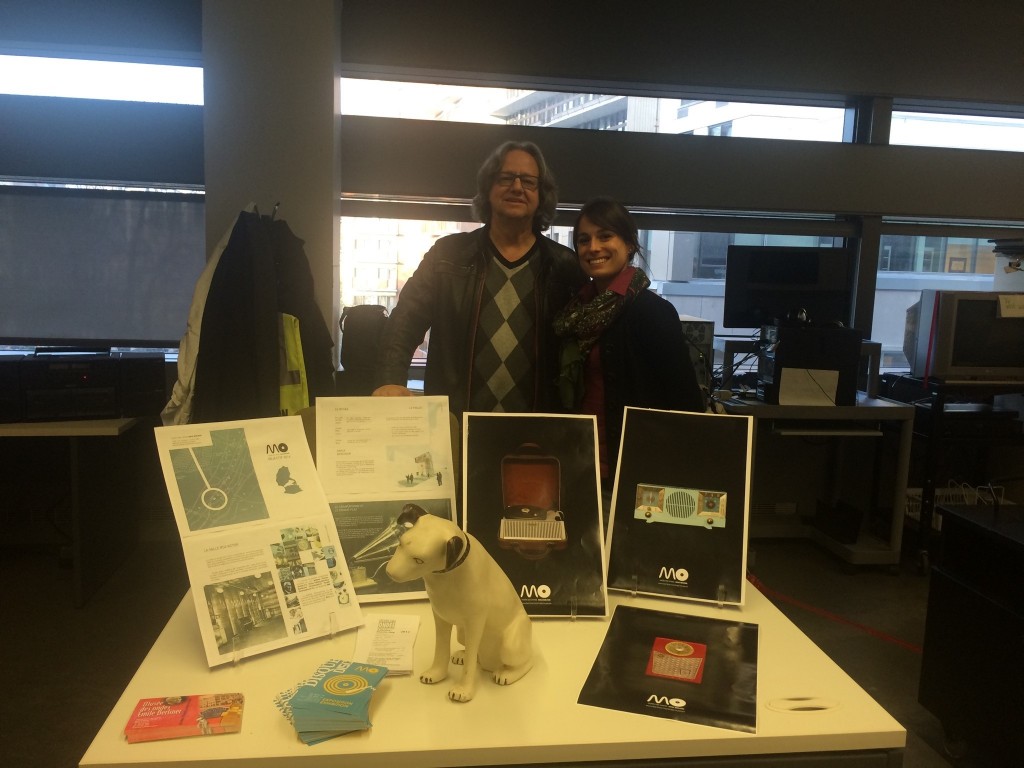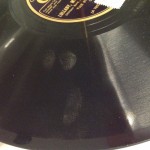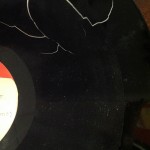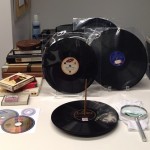In celebration of UNESCO’s World Day for Audiovisual Heritage, the Marvin Duchow Music Library’s Audiovisual Archives opened its doors on Monday, October 27, inviting visitors to learn more about its collections and services, as well as its ongoing preservation efforts.
In addition, special guests Gaétan Pilon and Meggie Savard from the Musée des Ondes Emile Berliner provided a wealth of information regarding the museum’s preservation and conservation efforts, while regaling us with stories of Montreal’s unique audio heritage.

Gaétan Pilon, President, and Meggie Savard, Development Director, from the Musée des Ondres Emile Berliner
As the preservation of unique performances on obsolete formats is of global concern, the McGill Audiovisual Archives plays a vital role in providing continued access to its unique collection for current and future students, teachers and scholars. In order to shed some light on the precariousness of some of these audiovisual formats, visitors were invited to view a display showcasing a sample of audio and video objects of interest.
Here, we see a few items showing various degrees of deterioration: the long-term effects of fingerprints on a shellac 78 disc, the delamination of an aluminum-based lacquered transcription disc, as well as a CD showing signs of “bronzing”, a form of CD rot.
- Long-term effects of fingerprints on a shellac 78 RPM recording
- The delamination of an aluminum-based lacquered transcription disc
- CD on the left hand side of image showing signs of “bronzing”, a form of CD rot.
Unstable formats, deteriorating materials, scarcity of playback equipment and parts in addition to qualified repair technicians are but some of the challenges audiovisual archivists are faced with when it comes to preserving content stored on the multitude of formats typically found in their care.
The open door event in celebration of the World Day for Audiovisual Touring The Past provided us an opportunity to share with our peers, students and faculty the importance of these preservation initiatives as we continue our efforts to ensure the accessibility of our audiovisual collections for generations to come.



